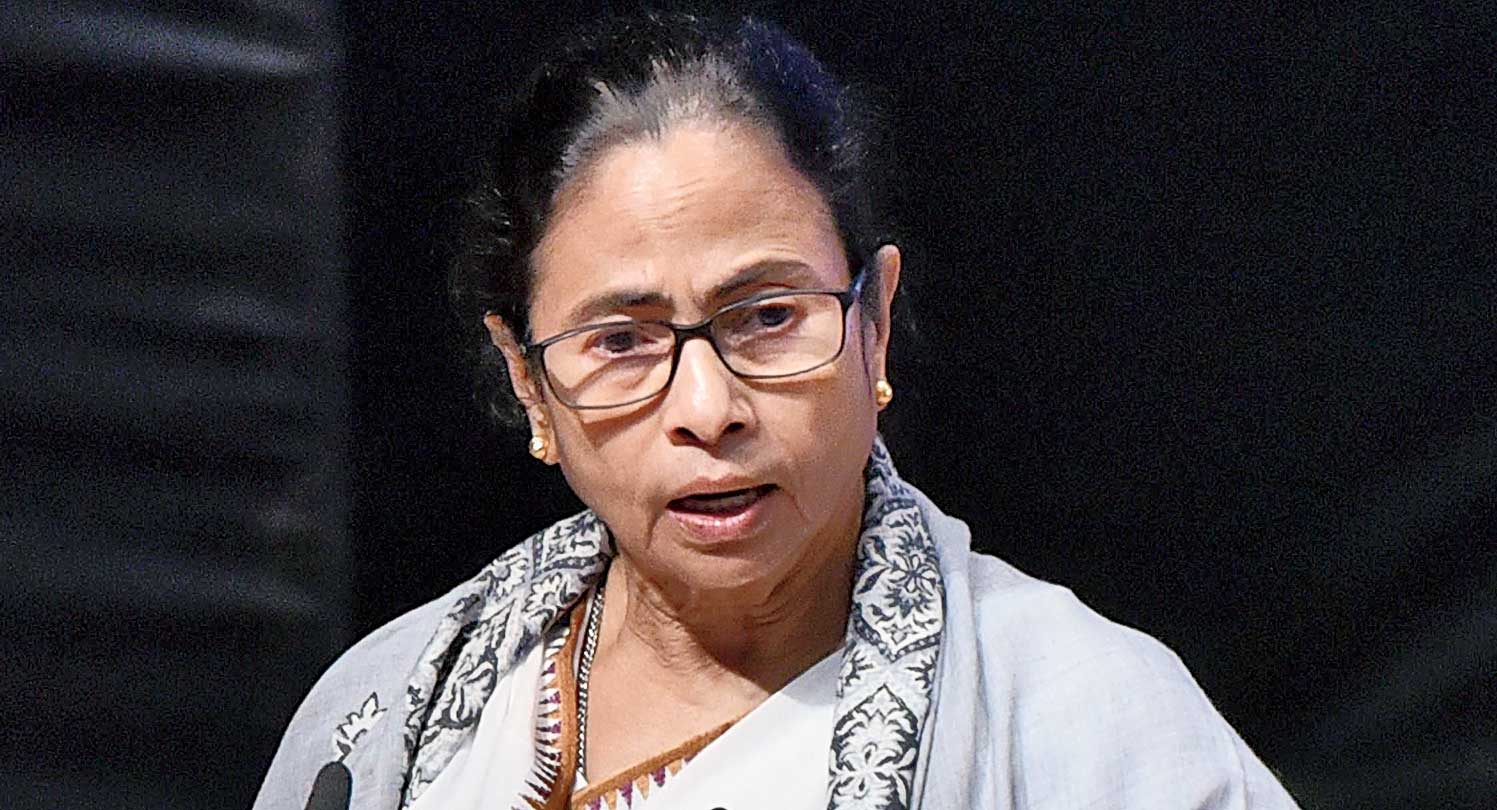Chief minister Mamata Banerjee on Saturday tried to dispel fears about ruthless containment to prevent the spread of Covid-19, underscoring that her government believed in a lockdown with a human face so that both life and livelihood could be saved.
“We will see that the lockdown is implemented fully. But we won’t shut down the grocery shops in the areas (sensitive spots). We will not shut down the doctors’ clinics in the areas. It is not that nobody will be able to go out to a shop. But no one will be on the streets. No gathering will be allowed on the roads,” the chief minister told a media conference at Nabanna.
Mamata said six Covid-19 positive cases had been reported over the past 24 hours in the state, taking the total number of active cases to 95. The death toll remained at five.
An announcement on Friday that the lockdown would be tightened in nine to 10 places in Bengal had generated a perception that the state was opting for steps similar to localised complete lockdowns in some other states where even essential services were shut.
On Saturday, the Bengal chief minister made it clear that she did not have any plans — at least for the time being — to enforce a total lockdown.
“What I have said in the morning (during the videoconference with Prime Minister Narendra Modi) is that we have to save both lives and livelihood by maintaining a balance. This lockdown would also be with a human face,” Mamata said.
An official later said that while the police would be strict in enforcing the lockdown in the sensitive areas, they had been asked to adhere to the chief minister’s mandate — “korakori, kintu barabari noy (strict but without any excesses)”.
At the Nabanna media conference, Mamata asked: “If a person from Bhowanipore having a medicine shop in Bagri Market is found positive, will the entire Bhowanipore be shut down? Why? Will entire Parnasree (in Behala) close down just for one case?”
“Let us do our job. If a person is found positive, the rest of the family should not be made untouchable. The areas need to be taken care of properly so that no other person gets affected,” Mamata added.
The chief minister explained how she was planning to ensure that the livelihood of common people was not affected. She said her government would allow flour mills, oil mills, bakeries and fisheries to operate but all the units have to maintain the lockdown protocol.
“Many people earn their livelihood through such units while these units ensure steady supply of essential items,” explained an official.
Mamata made it clear her government was keeping a close watch on the areas from where Covid-19 positive cases had been reported while laying down a plan the government would implement in these areas.
“The Calcutta Municipal Corporation and Calcutta police, along with the fire brigade, would sanitise the areas completely. People of these areas would be alerted so that they can take care of (themselves) properly. They will be requested to adhere to the guidelines provided by the police and the administration,” said the chief minister.
She said the government had identified sensitive spots — based on reports of the enforcement task force or information collected locally — and had a clear idea about how to go about on its mission to prevent the spread of the virus.
That Mamata was trying to allay fears about a total lockdown became apparent in the question-and-answer session when she was asked what the government was planning for the “hotspots”.
“It is not hotspot…. You can call it micro-planning of the government for sensitive areas,” she said.
Asked whether the state would conduct rapid tests in the sensitive areas, the chief minister said the state was waiting for rapid test kits from the Centre.
“Let us receive the rapid test kits. We have asked for 50,000 kits from the Centre. When we get them, we will start our operation,” the chief minister said.
She, however, said the government would not specify the areas as the mapping could change anytime if a new case was found from a new area. Sources in Nabanna said the chief minister explained the plan in detail to ensure there was no panic.
An official said: “It is important to ensure that people stay indoors without bothering much about the essential items…. The chief minister allayed the fears and it will be easier to enforce the lockdown. The police would ensure that social distancing is maintained everywhere. The police would use drones to ensure that nobody comes out of their homes unnecessarily.”











